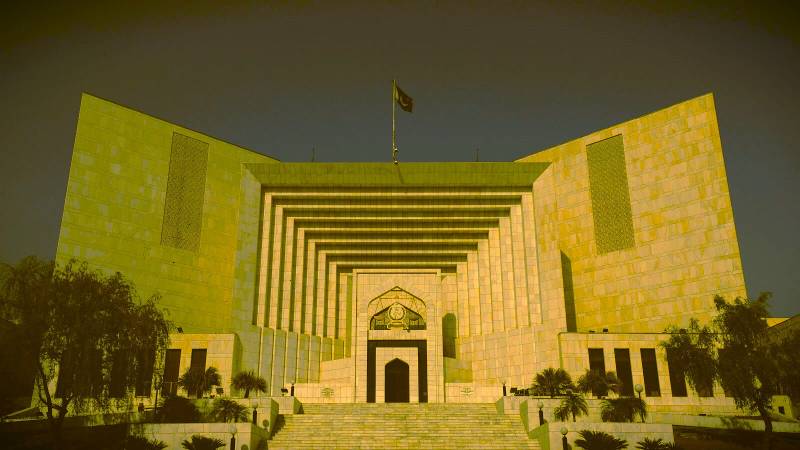
Pointing to the plethora of 'unnecessary litigation', Chief Justice of Pakistan Qazi Faez Isa has raised questions on the ability and competence of law officers from Punjab after a simple case of land acquisition by the government dragged on for 30 years and ended up in the top court.
"It appears that the ability to take a decision, whether to assail or not a decision, does not exist in senior officers," observed Chief Justice Isa in a three-page short order regarding a land dispute in Punjab.
"The government of Punjab and every employee of it, including those in the office of the Advocate-General, run on public funds, therefore, one expects a much higher standard from them," Chief Justice Isa further observed.
"The government and its servants are there to serve the people."
The observation came as he heard a case where the provincial government had built a road on nine marlas of land but failed to pay the owner for his land. Moreover, the government did not acquire the land under the relevant Land Acquisition Act, of 1894. Subsequently, the land owner filed a suit against the government in 1997. Eventually, the case landed in the top court in 2021 after the provincial government challenged an order by the high court.
According to the written order, the top court asked the Punjab Additional Advocate General (AAG) whether the land was compulsorily acquired under the Act, or was it gifted or whether an agreement was entered into with the owner of the land.
However, the law officer answered in negation.
"Nonetheless, the petitioners (government departments) have deemed it fit to assail the order of the High Court," the top court noted.
The petitions by the deputy commissioner and Gujranwala District Collector were signed by two AAGs, Malik Abdul Aziz Awan and Asif Afzal Bhatti on February 3, 2021.
The Advocate On Record (AOR) engaged was the Punjab Law and Parliamentary Affairs Secretary Bahadur Ali Khan.
"This is a classic example of frivolous litigation, and that too by those whose salaries are paid by the taxpayers of the country," observed the chief justice.
"They deemed it fit to challenge a matter of little financial significance and do so contrary to the provisions of the Constitution of Pakistan, which guarantees, as a fundamental right, the right to acquire, hold and dispose of property (Articles 23 and 24), and being oblivious to the fact that a person can only be compulsorily deprived of property provided compensation therefore is paid," the order further observed.
The top court has further observed that this was the fourth legal forum before which the government of Punjab was a party in the case, and it pleads by disregarding the Constitution and the law.
"Not only have public resources been wasted, but also court time, both of which are a trust held on behalf of the people," observed the chief justice.
"The respondents (owner of the land) who were deprived of their land must have spent money and time with regard to a case which should have never seen a court of law, provided the petitioners (Punjab government) had abided by the Constitution and the law," the chief justice observed.
"Whilst counsel of private parties are accountable to them, and may resort to unnecessary litigation, this is not expected from the petitioners (government officers)."
"In this case, land was taken without compensating the respondents," the top court noted.
While declining the petition, the top court directed the Punjab government to pay the land owners the requisite compensation apart from an additional million rupees for costs incurred.
Chief Justice Qazi Faez Isa further directed sending the case order to the Punjab Chief Secretary and other relevant departments for compliance.

